
CARIBOU MAKE DO. They use as little as possible, often what nobody else wants. They perfected this impulse over tens of thousands of years, chasing north after retreating ice sheets while most other hooved animals stayed further south, or spreading themselves thinly across scraps of land in forests and valleys and on mountaintops.
They even learned how to survive the privations of winter by subsisting on lichen. Platter-sized hooves — ersatz snowshoes — support them on the snow to reach it on high. Shovelshaped antlers help some of them dig snow craters to find it down low.
But getting to the lichen is only part of the survival trick. Caribou also need to squeeze every last bit of nutrition out of the protein-poor food, which means they had to figure out how to reuse their own urea, a chemical byproduct of metabolism, a little like us being able to drink the same cup of coffee twice to get every smidgen of caffeine out of it. The feat continues to impress evolutionary biologists.
Suffice it to say that Rangifer tarandus is built for survival. Females even limit themselves to the birth of a single calf each year, the better to husband resources.
Yet today, after more than a million years on Earth, the caribou, also known as the reindeer, is under threat of global extinction. In Canada, where the animal is such a national icon that it graces our quarter coin, the species is in ominous shape. Of a dozen ecologically distinct populations (called “designatable units” by the Committee on the Status of Endangered Wildlife in Canada), one is extinct, six are endangered, three are threatened and two are of special concern.
Denne historien er fra September/October 2021-utgaven av Canadian Geographic.
Start din 7-dagers gratis prøveperiode på Magzter GOLD for å få tilgang til tusenvis av utvalgte premiumhistorier og 9000+ magasiner og aviser.
Allerede abonnent ? Logg på
Denne historien er fra September/October 2021-utgaven av Canadian Geographic.
Start din 7-dagers gratis prøveperiode på Magzter GOLD for å få tilgang til tusenvis av utvalgte premiumhistorier og 9000+ magasiner og aviser.
Allerede abonnent? Logg på
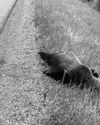
ANIMAL XING
THIS PAST SUMMER AN AMBITIOUS WILDLIFE UNDER/OVERPASS SYSTEM BROKE GROUND IN B.C. ON A DEADLY STRETCH OF HIGHWAY JUST WEST OF THE ALBERTA BORDER. HERE’S HOW IT HAPPENED.

Unearthing a giant
Almost 30 years ago, paleontologist Elizabeth “Betsy” Nicholls made a discovery of colossal proportions
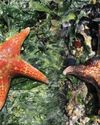
WE DID THIS
AS THE IMPACTS OF GLOBAL WARMING BECOME INCREASINGLY EVIDENT, THE CONNECTIONS TO BIODIVERSITY LOSS ARE HARD TO IGNORE. CAN THIS FALL’S TWO KEY INTERNATIONAL CONFERENCES POINT US TO A NATURE-POSITIVE FUTURE?
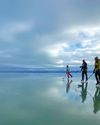
The COOLEST COUNTRY
“The coolest country” celebrates the wonders of winter with an all-Canadian theme. The 20-page travel planner includes a bucket list from travel writer Robin Esrock, steamy spa ideas, ice fishing destinations, festival fun, northern itineraries and more!

KEEPER of the SEA
FROM BEING LABELLED DEVIL’S APRON BY FRUSTRATED FISHERMEN TO BEING LAUDED AS A SUSTAINABLE FOOD SOLUTION: HOW KELP’S POTENTIAL IS BEING REALIZED, JUST AS SCIENTISTS LEARN IT’S DECLINING
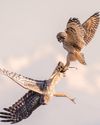
WILD THINGS
WILD CANADIAN GEOGRAPHIC PRESENTS THE WINNERS OF ITS ANNUAL CANADIAN WILDLIFE PHOTOGRAPHY OF THE YEAR COMPETITION

AN EMPTY LANDSCAPE
AFTER MORE THAN A MILLION YEARS ON EARTH, CARIBOU ARE UNDER THREAT OF GLOBAL EXTINCTION. THE PRECIPITOUS DECLINE OF THE ONCE MIGHTY HERDS IS A TRAGEDY THAT IS HARD TO WATCH — AND EVEN HARDER TO REVERSE.
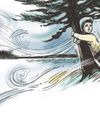
NORTHERN EXPOSURE
BON INTO A CARIBOU-HUNTING CREE FAMILY IN NORTHERN MANITOBA, ACCLAIMED PLAYWRIGHT AND NOVELIST. TOMSON HIGHWAYS PAYS TRIBUTE TO THE MAGICAL WORLD OF HIS CHILDHOOD IN PERMANENT ASTONISHMENT

INTO THE ARCTIC
CANADIAN PAINTER AND FILMMAKER CORY TRÉPANIER EXPLORES THE SUBLIME AND RAPIDLY CHANGING CANADIAN ARCTIC
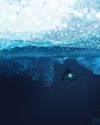
Under the ice
Until the last decade, we knew little about what lay beneath the Arctic ice. Now scientists and explorers are shedding light on this vanishing world.